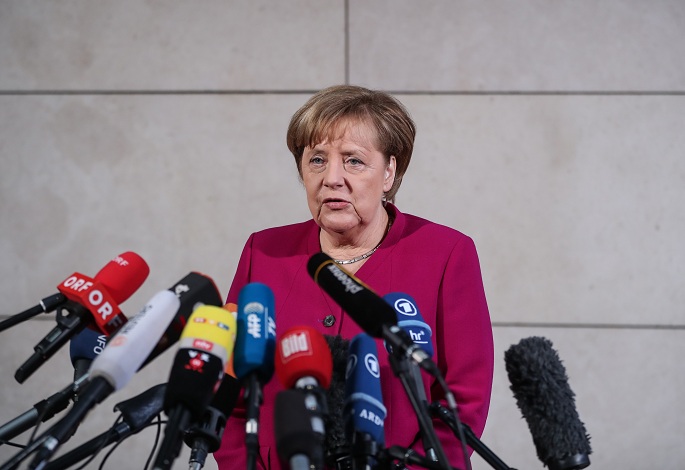German coalition negotiations hinging on immigration policy: media
Published : 11 Jan 2018, 00:00
Updated : 11 Jan 2018, 00:07

Negotiators of the Christian Democratic Union (CDU), its sister party Christian Social Union (CSU) and Social Democratic Party of Germany (SPD) still have to settle their different political views on many key issues, German media reported Wednesday.
However, unlike the failed "Jamaica" negotiators, the parties are accustomed to working with each other and first agreements are within reach, reports added.
SPD leader Martin Schulz said before the talks on Wednesday here that it would be a long day. Chancellery Minister Peter Altmaier (CDU) underlined, "We still have a lot of work ahead of us."
The Union and SPD want to conclude the negotiations on Thursday. The working groups are negotiating "very, very intensively," said CSU General Secretary Andreas Scheuer.
One of the main topics will be the issue of family reunification of refugees. SPD politician Burkhard Lischka proposed a compromise of around 40,000 newcomers. This corresponds to the number of visas issued for relatives of Syrian refugees over the past years, German newspaper Mitteldeutsche Zeitung reported Wednesday.
Family reunification is suspended for refugees with limited protection status, which affects many Syrians, until mid-March. The Union demands continued suspension, while the SPD does not.
According to information from negotiators published by the Bild newspaper, family reunification will be permanently suspended for immigrants with limited protection status. The report states that the SPD negotiated a generous rule for extreme cases, the details of which still need to be clarified.
Reaching a decision is urgent. In order for the Federal Assembly to pass a law on the further suspension of family reunification in time, the bill must be passed by the Federal Parliament before the meeting on March 2.
Coalition negotiators plan to present a result on the basis of which the SPD party leadership could recommend or deny official coalition negotiations on Thursday or at the latest on Friday.
Coalition parties have now created "a good foundation of trust and collegiality," Scheuer said. It is unclear whether the self-set deadline can be met or if talks need to be prolonged even further as working groups met in Berlin on Wednesday.
According to Scheuer, negotiators have begun discussing the volume of the German government's budget. "We want to strongly develop our country, and invest in many big new challenges," he said Tuesday night. German media reports of a financial framework of up to 45 billion euros (54 billion U.S. dollars).
Free Democratic Party (FDP) leader Christian Lindner accused the CDU chairman Chancellor Angela Merkel of buying their respective coalition partners with tax money.
He told the Passauer Neue Presse: "All problems and all contradictions during the negotiations are to be buried with tax money."

